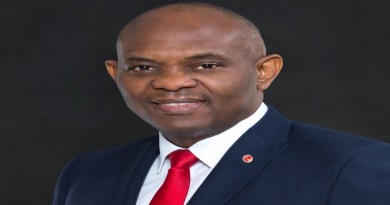FG, ACCA, CIBN to tackle fraud, corruption in financial sector
As part of its effort in ensuring financial systems integrity, while improving the Nigerian banking system, Presidential Advisory Committee Against Corruption (PACAC) in collaboration with the Association of Chartered Certified Accountants (ACCA), the Convention on Business Integrity (CBI) and the Chartered Institute of Bankers of Nigeria (CIBN) have joined forces to tackle fraud and financial corruption in the country’s banking and finance sector.
Latest statistics put financial institutions and other firms dealing with finances in the country lose to hackers and fraudulent related activities to N127 billion every year.
However, there is no gainsaying about the fact that cyber fraud has become a real threat to Nigeria and industry experts have been canvassing for the need to tackle the menace with good cyber security measures.
In view of this, an anti-corruption programme has been scheduled to hold on 30th June, 2017 in Abuja, themed: ‘Financial Systems Integrity Improvement’, a conference with Nick Leeson as the keynote speaker.
The organizer of the conference promised that it will address regulatory and institutional measures being taken by the financial services sector and regulators to minimize fraud and corruption in the sector, while the effectiveness of such measures and required steps to close existing gaps and effectively sanction breaches by few defaulting players.
The collaborating partners are persuaded that all stakeholders in the financial services sector share a common goal for enthronement of systemic integrity and accountability in light of existing self-regulating measures albeit inadequate.
Therefore, the conference will identify further preventive and practical measures required by the players and regulators to tackle fraud, corruption and other forms of financial crimes.
The conference will be attended by key players in the financial services sector including the Minister of Finance, Governor of CBN, Chief Executives of Banks and other financial institutions, compliance officers of banks, private sector operators, consumers of financial services, civil society and representatives of the diplomatic community.
Meanwhile, Nigeria electronic Fraud Forum (NeFF) promise to look critically at measures that will protect the industry as a whole from the menace of cyber attacks in 2016, but no less than a whopping N2.19 billion was lost to fraudsters, who infiltrated the cyberspace during the period under review.
Although, the introduction of the cashless policy is part of measures to check graft in the system as well as to reduce the cost of cash management by the Central Bank of Nigeria (CBN), which has helped to record an improved e-transactions through the Nigeria Central Switch (NCS), to the tune of N64 trillion in 2016.
Just recently, the NeFF meets to review the 2015 Cybercrime Act, the central bank, the banker of last resort, has charged stakeholders to come up with workable policies to enhance the efficiency of electronic transaction, with a view to reducing fraud.
However, the reality is that although there is the Cybercrime Act 2015, in Nigeria to protect users of e-payment models, but most of the fraudsters caught during the period could not be effectively prosecuted. This is because the Act as presently constituted, is according to stakeholders and experts “nebulous and redundant.”
The Deputy Governor, Operations, CBN, Adebayo Adelabu, also the Chairman of NeFF, regretted that as the Forum was upgrading the system to make it simpler and safer for users; the fraudsters too were innovating and attacking users. This led to the losses recorded, thus making a review of the Act, to protect the electronic payment system.




